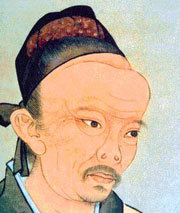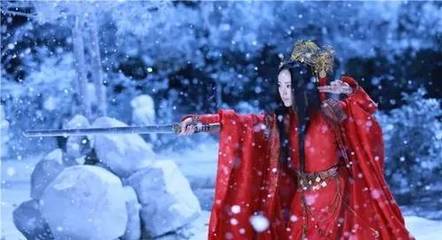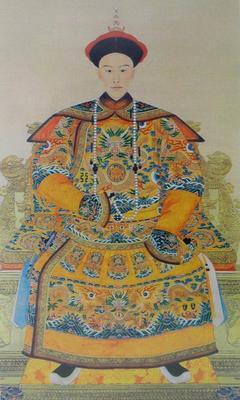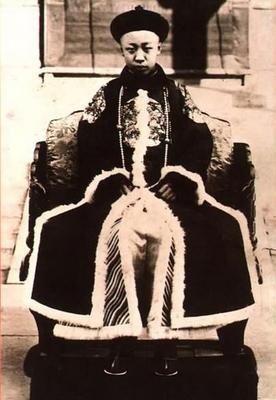昨天想写的标题为“屈原死得没有价值”。为什么呢?
毛泽东在其老三篇之一的《为人民服务》中说过:
人总是要死的,但死的意义有不同。中国古时候有个文学家叫司马迁的说过:“人固有一死,或重于泰山,或轻于鸿毛。”为人民利益而死,就比泰山还重;替法西斯卖力,替剥削人民和压迫人民的人去死,就比鸿毛还轻。张思德同志是为人民利益而死的,他的死比泰山还要重的。(Allmen must die, but death can vary in its significance. The ancientChinese writer Sima Qian said, “Though the death befalls all menalike, it may be weightier than Mount Tai or lighter than afeather.” To die for the people is weightier than Mount Tai, but towork for the fascists and die for the exploiters and oppressors islighter than a feather. Comrade Zhang-Side died for the people, andhis death is indeed weightier than Mount Tai.)

为什么屈原死得没有价值,那是因为他不是为人民而死的。
而且,众人皆醉我独醒,众人皆浊我独清,最后,我选择“众人皆活我独死”,而且死后也没有解决什么问题,楚国亡得更快些。所以,价值何在?
我在《中国日报》的网站找到了对屈原的英文介绍。其中一段如下:
Qu was a minister ofthe State of Chu situated in present-day Hunan and Hubei provinces,during the Warring States Period (475-221BC)(战国时期). He was upright, loyal and highly esteemed forhis wise counsel that brought peace and prosperity to the state.However, when a dishonest and corrupt prince vilified Qu, he wasdisgraced and dismissed from office. Realizing that the country wasnow in the hands of evil and corrupt officials, Qu grabbed a largestone and leapt into the Miluo River on the fifth day of the fifthmonth. Nearby fishermen rushed over to try and save him but wereunable to even recover his body. Thereafter, the state declined andwas eventually conquered by the State of Qin.
大意是:屈原是楚国的大臣,正直、忠诚、有才,因为他那能给楚国带来和平和繁荣的聪明建议而受到尊重。有个不诚实和腐败的price诽谤他,他感到楚国被奸侫腐败的官员掌权,怀抱大石头投汩罗江而死。
这里,不知道price具体指谁,也有另外一说:
鉴于当时形势,屈原主张改良内政,对外主张联齐抗秦,因而侵害了上层统治阶级的利益,遭到了那些受秦国贿赂的楚怀王的宠姬郑袖、上官大夫、令尹子椒的排挤和陷害。
其实,他惦记的是楚王的统治,以及自己主张的正确性,自己只是成了利益争斗和反间计的牺牲品。其实,诸候也吧,皇帝也吧,只不过是规模最大的民营企业而已,既然老板不喜欢你,不想采纳你的建议,你为什么还要不识时务,不知趣呢。
长期以来,中国的封建社会都在宣扬臣子的“死忠”、“死谏”,似乎这就是忠、这就是爱国,为什么?作为封建统治者的老板,他喜欢有能人为他服务,可是又不会真拿他们当盘菜,他有自己的小九九,于是在自己不高兴时,赐死大臣、逼大臣自杀都是常有的事。但是,如此一来,能人惶恐地退避三舍,还会为其服务吗?于是,在大臣死后,皇族的继任者会对死去的大臣加以褒奖,给他们身上添加光环,为他们的死编造、附着上出浪漫的故事。从而做到了:能人我可以用,也可以杀,而能人还不会离我而去,就算是杀错了,也是下面人的事,与皇或王无关,老板是受蒙弊的,最多是个失察之责。而老百姓呢?从来不会痛恨皇或王,而是痛恨帮他杀人的那个人,这就是为什么秦桧携夫人会跪在岳飞的墓前,让人唾弃,而没有人把赵构拉来一起跪。就算当时不敢,改朝换代多少年了,还是没有人敢做这事。
可是,为什么有很多人不是此处不留爷自有留爷处呢?因为还有一个枷锁:就是离开国家就是不爱国。所以,屈原只能留在楚国。能而不用,却不能出国,又认为自己的主张正确,又不原意“采菊东篱下”,于是,只有死路一条。
屈原不姓屈,而是姓芈(mi),叫屈原是因为他死得屈。翻译过来就是“死得不值”。从某种角度猜测,屈原有可能是让人身上捆了石头,扔到江里沉江的。
为什么不值?
他因自己受排挤而怨,因认为楚王不明白他是对的而烦,因自己怀才不遇而闷,他因自己不楚王所用而死,并不是替老百姓打官司而死,他的死也没有让楚王有什么心得,楚国也很快完蛋。而且,从历史的长河来看,他维护楚国就是维护诸候分封,与一统全国山河背道而驰。再说了,不为人所用,那就该干什么干什么去,哪里凉快哪里呆着不就完了。你说,这种死有什么价值?
屈原的悲剧在于:他把老板的企业真正当成了自己的企业,把自己当成了老板不得不用的棋子,因为他觉得只有他是正确的。他已经弄不清谁是老板了,搞不清谁是爹了。
屈原的死对现代人的意义在于:如果老板都想完蛋,那就让他完蛋。因为在他完蛋之前,他不会相信你说的如果不听你的,他会完蛋的话,反而先让你完蛋。即便将来你的话不幸而言中,死掉一个老板不可惜,从能量守恒、资源整合的角度看,这是在资源优化。如果你不让他死,就是阻止了资源在更大范围内的优化、整合,是与社会发展趋势背道而马也。
毛泽东说:今后我们的队伍里,不管死了谁,不管是炊事员,是战士,只要他做过一些有益的工作的,我们都要给他送葬,开追悼会。这要成为一个制度。这个方法也要介绍到老百姓那里去。村上的人死了,开个追悼会。用这样的方法,寄托我们的哀思,使整个人民团结起来。(Fromnow on, when anyone in our ranks who has done some useful workdies, be he soldier or cook, we should have a funeral ceremony anda memorial meeting in his honor. This should become the rule. Andit should be introduce among the people as well. When someone diesin a village, let a memorial meeting be held. In this way weexpress our mourning for the dead and unite all the people.)
不是为人民得益而死的屈原这一死不打紧,人民却要年年给他开追悼会。
时过境迁,昨天有朋友发来人生感悟:
感谢屈原老师用生命为我们换来了一天假期!放假是很好很好很好很好的纪念方式,我们还想纪念:孔子孟子庄子韩非子,曹操刘备孙权诸葛亮,李白杜甫苏轼白居易,刘邦项羽,康熙雍正乾隆,袁世凯孙中山…….等365位历史名人。
我就想,中国可纪念的历史名人太多了,要是再有365个,我们大家岂不是在家躺着就能领双薪了!
也有人说:同是名人,老马走了,给我们留下背到口吐白沫的思想理论和磨到手长老茧的论文、试题,屈原走了,却给我们留下了假期……还是中国人心疼中国人啊……
今天早晨,起床后再卧到沙发上,我看着手机报,老婆穿衣准备出去走路锻炼身体。我告诉他,屈原是个同性恋,他爱楚王,失意悲伤因楚王变心,这是国学家孙次舟的观点,获利了朱自清和闻一多的支持。梁启超的学生、费孝通的老师潘光旦也认为《离骚》、《九歌》等诗,是屈原和楚怀王爱情亲疏的记录。
我问媳妇,你知道这些后还会认为屈原是爱国的吗?她考虑了二秒钟,说道:爱楚王就是爱国。
有道理。
岳飞是爱国不忠君的典型代表。不过他也不是不忠君,他忠的不是康王赵构,而是徽、钦二帝。你想,二帝回来了,还有赵构这个孙子和儿子的事吗?而岳飞呢,岂不是开国元勋。在赵构看来,国仇家恨不足道,唯有他的权位最重要。结果还是那个问题:老板和员工的目标出现了偏离。所以,岳飞不死都不行。岳母刺字“精忠爱国”,他都做到了,爱国没有问题,因为他抗金,而忠是很精的忠,而这种精,害了他。
而屈原是爱国又忠君,却也得死的典型。
要说忠君不爱国的典型呢?等找到再写。
于是,我坐了下来,写了这个博文。是以为记。
中国日报的全文:
The DragonBoat Festival, also called the Duanwu Festival, is celebrated onthe fifth day of the fifth month according to the Chinese calendar.For thousands of years, the festival has been marked by eating zongzi (glutinous rice(糯米)wrapped to form a pyramid using bamboo or reedleaves) and racing dragon boats.
The festival is best knownfor its dragon-boat races, especially in the southern provinceswhere there are many rivers and lakes. Thisregatta(赛舟会)commemorates the death of Qu Yuan , an honestminister who is said to have committed suicide by drowning himselfin a river.
Qu was a minister of theState of Chu situated in presen--t-day Hunan and Hubei provinces,during the Warring States Period (475-221BC)(战国时期). He was upright, loyal and highly esteemed forhis wise counsel that brought peace and prosperity to the state.However, when a dishonest and corrupt prince vilified Qu, he wasdisgraced and dismissed from office. Realizing that the country wasnow in the hands of evil and corrupt officials, Qu grabbed a largestone and leapt into the Miluo River on the fifth day of the fifthmonth. Nearby fishermen rushed over to try and save him but wereunable to even recover his body. Thereafter, the state declined andwas eventually conquered by the State of Qin.
The people of Chu whomourned the death of Qu threw rice into the river to feed his ghostevery year on the fifth day of the fifth month. But one year, thespirit of Qu appeared and told the mourners that a hugereptile(爬行动物)in the river had stolen the rice. The spirit thenadvised them to wrap the rice in silk and bind it with fivedifferent-colored threads before tossing it into theriver.
During the Duanwu Festival,a glutinous rice pudding called zong zi is eaten to symbolize therice offerings to Qu. Ingredients such as beans, lotusseeds(莲子), chestnuts(栗子), pork fat and the golden yolk of a salted duckegg are often added to the glutinous rice. The pudding is thenwrapped with bamboo leaves, bound with a kind of raffia and boiledin salt water for hours.
The dragon-boat racessymbolize the many attempts to rescue and recover Qu's body. Atypical dragon boat ranges from 50-100 feet in length, with a beamof about 5.5 feet, accommodating two paddlers seated side byside.
A wooden dragon head isattached at the bow, and a dragon tail at thestern(船尾). A banner hoisted on a pole is also fastened atthe stern and the hull is decorated with red, green and blue scalesedged in gold. In the center of the boat is a canopied shrinebehind which the drummers, gong(铜锣)beaters and cymbal(铙钹)players are seated to set the pace for thepaddlers. There are also men positioned at the bow to set offfirecrackers, toss rice into the water and pretend to be lookingfor Qu. All of the noise and pageantry creates an atmosphere ofgaiety and excitement for the participants and spectators alike.The races are held among different clans, villages andorganizations, and the winners are awarded medals, banners, jugs ofwine and festive meals.
其他材料:端午节吃什么? 粽子tsung-tse:Glutinous rice(糯米)filled with meat, nuts or beanpaste(豆酱)and wrapped in bamboo leaves.It is associated with Dragon Boat Festival with historicalmeaning.The custom of eating tsung-tse is also popular in North andSouth Korea, Japan and Southeast Asian nations.
端午节喝什么? Adults drinkrealgar wine, which can fend off evil spirits.
端午节玩什么? Dragon boatracing is an indispensable part of the festival, held all over thecountry. As the gun is fired, people will see racers indragon-shaped canoes pulling the oars harmoniously and hurriedly,accompanied by rapid drums, speeding toward theirdestination.
端午节戴什么? 端午节最有特色的饰物就是香包(sachet)。小孩佩戴香包,传说有避邪驱瘟之意。用含有多种香味的药用植物做成的香包也可以预防疾病。On Dragon Boat Festival,parents also need to dress their children up with asachet-香包. They first sew little bags with colorful silkcloth, then fill the bags with perfumes or herbalmedicines(草药), and finally string them with silk threads. Thesachet will be hung around the neck or tied to the front of agarment as an ornament. They are said to be able to prevent fromdiseases and ward off evil.
端午节挂什么? 在门上挂艾叶和菖蒲hang branchesof moxa and calamus around the doors of their homes和悬钟馗像display portraitsof evil's nemesis, Chung Kuei 都是为了驱疾避凶,讨个吉利。
 爱华网
爱华网



